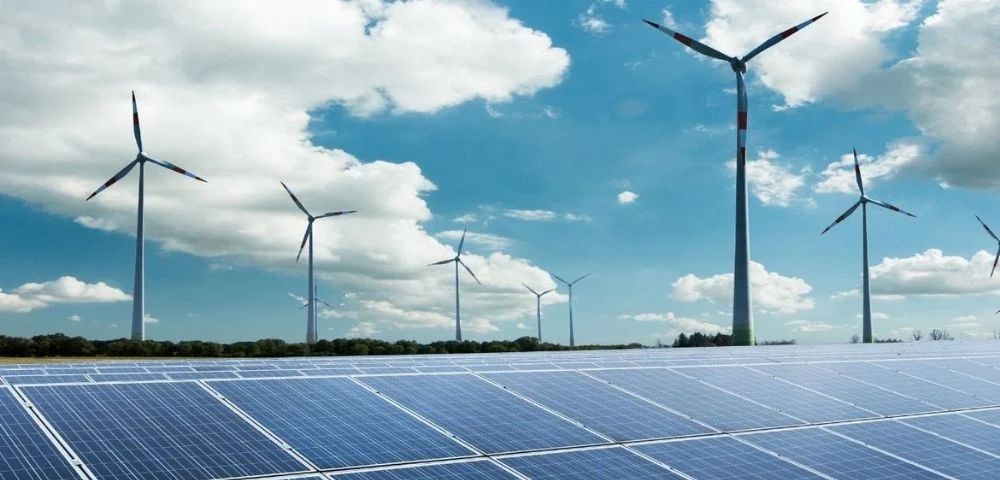
What is Artificial Intelligence?
Artificial Intelligence refers to the development of computer systems that can perform tasks that typically require human intelligence. These tasks include learning, reasoning, problem-solving, understanding natural language, speech recognition, and visual perception. The ultimate goal of artificial intelligence is to create machines that can replicate or simulate human cognitive functions, allowing them to perform complex tasks autonomously.
One of the concepts that has entered our lives with digital transformation is undoubtedly artificial intelligence and machine learning. Developing at a remarkable pace, these technologies are not neglecting to transform many industries in which they are present. One of the standout sectors in this context is the energy industry. Many energy companies that keep up with the times prioritize investing in artificial intelligence and machine learning techniques. They are taking inspiring steps by leveraging AI technologies in various areas, including production, operational processes, supply, and occupational health and safety.
But how have artificial intelligence and machine learning techniques found their place within the energy sector? In which areas are they predominantly used? What benefits do they provide?
Artificial Intelligence Applications in Energy Industry
The share of renewable energy in the overall energy production is increasing day by day. According to the latest report from the global renewable energy community IRENA, the total installed renewable power capacity worldwide reached approximately 3,372 GW in 2023, 90% wind and solar share of new renewable capacity in 2022, marking an 9.6% increase relative to last year.
However, to achieve the net-zero target by 2050, this percentage needs to rise even further. At this stage, artificial intelligence applications can serve as guiding tools for energy companies.
Artificial intelligence has the capability to create an intelligent coordination network throughout the entire process of producing, transmitting, and utilizing renewable energy. By monitoring data within these processes, it can identify insights, thereby aiding in the real-time modeling and prediction of potential outcomes. This ultimately ensures that activities are executed with the minimal margin of error.
Artificial Intelligence in Renewable Energy
The energy landscape is becoming increasingly intricate. While the rising adoption of renewables is undoubtedly beneficial for the planet, the intermittent nature of wind and solar power poses challenges for energy system operators. Balancing supply and demand, a task that has always required forecasting, is now more complex than ever due to weather pattern shifts. Over 80% of the variations in renewable energy production from solar and wind sources are attributed to atmospheric factors. Each year, fines are incurred by renewable energy operators as a result of imbalances in production. As an example, a facility with an average production capacity of 60MW encounters around 500,000 EUR in fines related to production imbalances annually.
Artificial Intelligence in Utility
Another significant application of AI lies in predictive maintenance, wherein the performance of energy assets undergoes continuous monitoring and analysis to anticipate potential faults in advance. Traditional maintenance routines often follow a predetermined schedule, such as inspecting poles on a transmission line at fixed intervals and conducting repairs as necessary. However, this standardized approach may lead to inefficiencies if maintenance occurs prematurely or, more critically, too late.
Energy activities require intense security and monitoring from operational processes to field explorations and the supply phase. Within this scope, the identification of systems requiring maintenance and repair, the optimization of used devices and equipment, and ensuring the safety of employees entail a significant effort. These processes, monitored with the help of sensors, can become more predictable through the use of artificial intelligence and machine learning algorithms.
In response to this challenge, numerous utilities are actively creating AI-driven systems to monitor physical assets. These systems leverage historical performance and outage data to predict when proactive intervention becomes necessary.

Benefits of Artificial Intelligence in Energy Industry
Efficiency Enhancement
AI-driven technologies optimize energy use in buildings, industrial processes, and transportation. Smart systems adapt to real-time conditions and user behaviors, maximizing efficiency and minimizing waste. This leads to a significant reduction in overall energy consumption.
Cost Reduction
Predictive maintenance, optimized grid operations, and efficient energy usage contribute to substantial cost reductions for energy companies. By minimizing downtime, optimizing asset performance, and improving overall system efficiency, AI becomes a cost-effective solution for the energy sector.
Sustainability and Emission Reduction
AI aids in monitoring and reducing carbon emissions by optimizing energy consumption and identifying areas for improvement. Smart grids, guided by AI, contribute to a more sustainable and eco-friendly energy ecosystem.
The Future of AI in Energy
As we stand on the brink of the Fourth Industrial Revolution, the role of AI in the energy sector is poised to expand further. Innovations in AI algorithms, machine learning, and data analytics will lead to even more sophisticated applications. The development of self-learning systems and advanced robotics holds the potential to revolutionize energy production and distribution.
Advanced Grid Management
The future envisions AI-powered autonomous grids capable of self-regulation and adaptation. These grids will intelligently balance supply and demand, integrating a diverse range of energy sources seamlessly.
Energy Storage Optimization
AI will play a crucial role in optimizing the performance of energy storage systems. Smart algorithms will manage the charging and discharging of batteries efficiently, contributing to grid stability and enhancing the lifespan of storage infrastructure.
Enhanced Cybersecurity
With increasing digitization, the energy sector becomes vulnerable to cyber threats. AI-driven cybersecurity solutions will continuously monitor and respond to potential risks, ensuring the secure operation of critical energy infrastructure.
Artificial Intelligence meets Weather Intelligence
In an era where the transformative influence of artificial intelligence is unmistakable, companies that adeptly navigate and embrace the evolving landscape of the energy industry are destined to excel. The Buluttan Weather Intelligence emerges as a pivotal solution, employing an AI-enhanced weather forecasting engine to accurately predict energy production. This foresight empowers proactive measures to mitigate unexpected penalties, exemplifying a strategic approach to operational challenges. Moreover, the optimization of maintenance and repair schedules for energy distribution lines assumes a central role in bolstering safety standards and concurrently achieving cost efficiencies. As the energy sector undergoes significant paradigm shifts, the integration of cutting-edge technologies such as AI becomes not only a necessity but a hallmark of forward-thinking and resilient enterprises.






